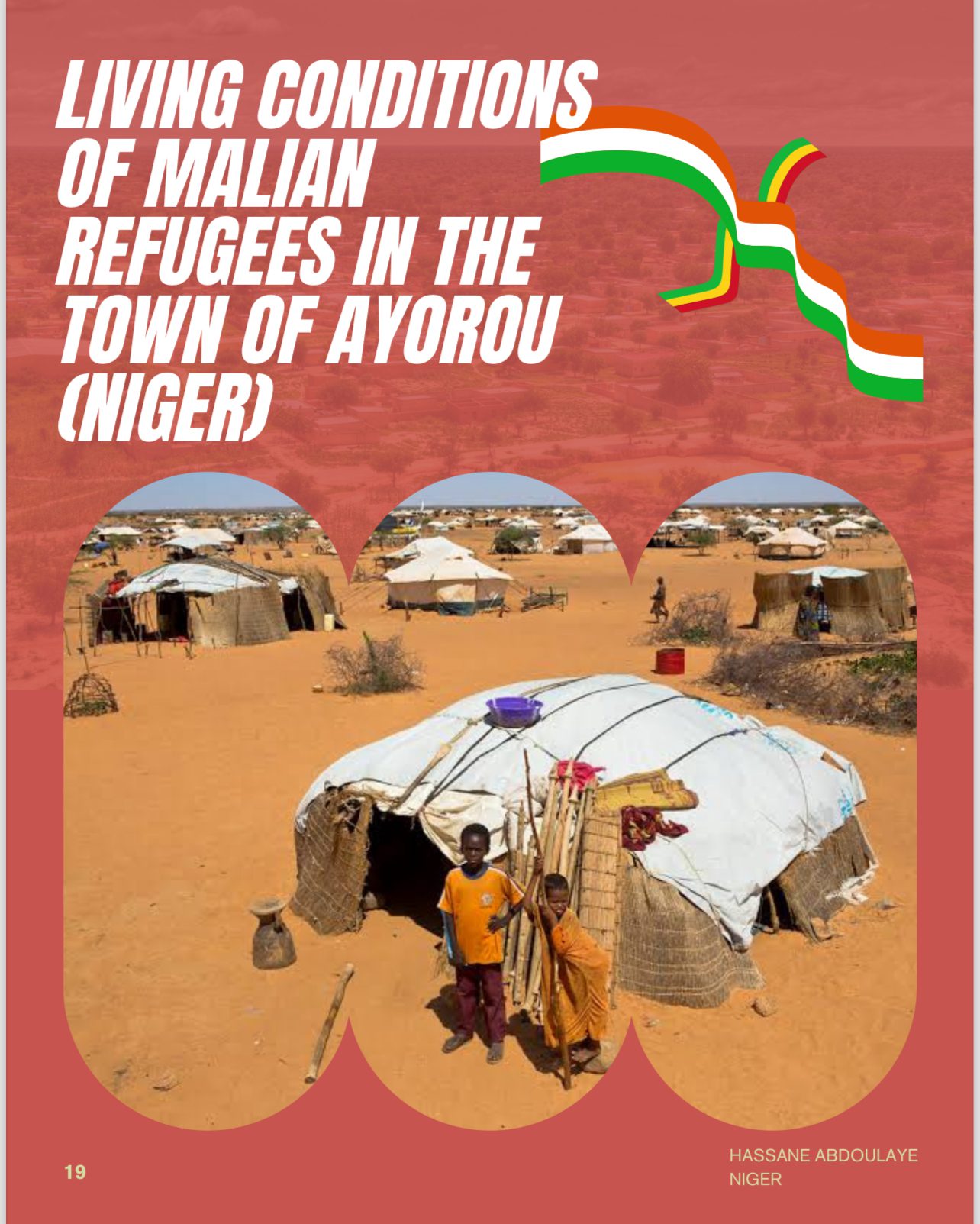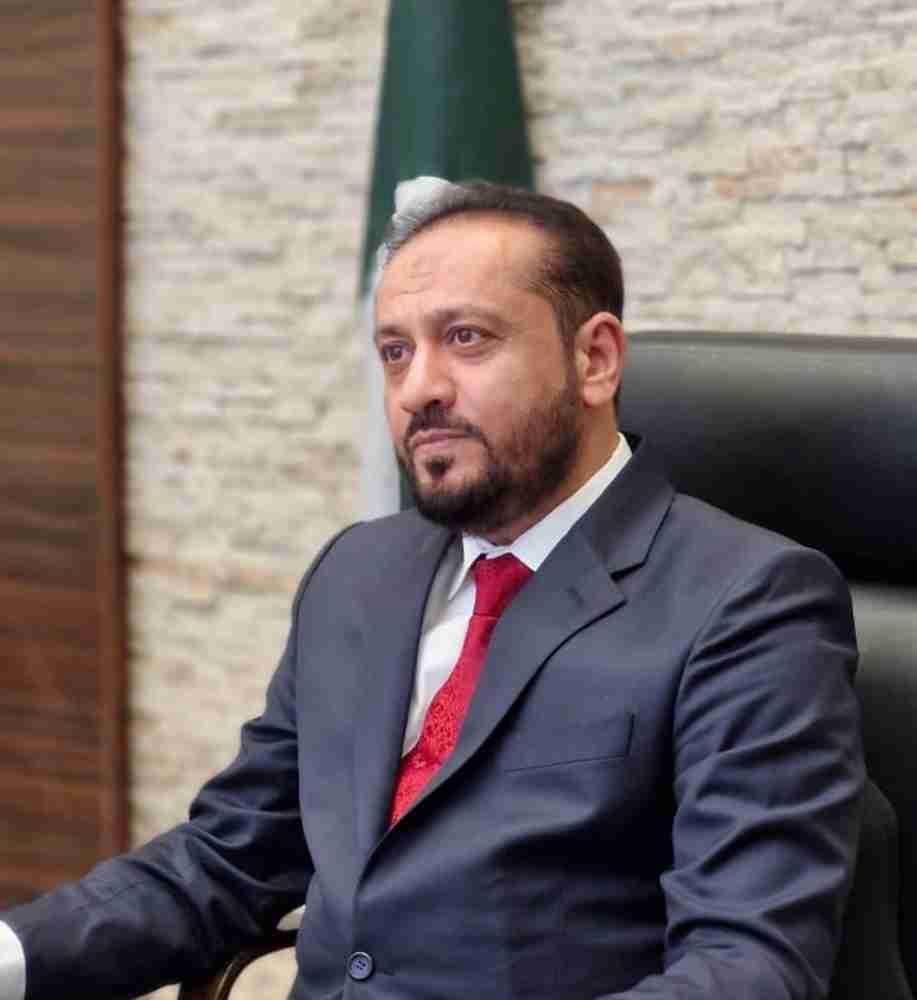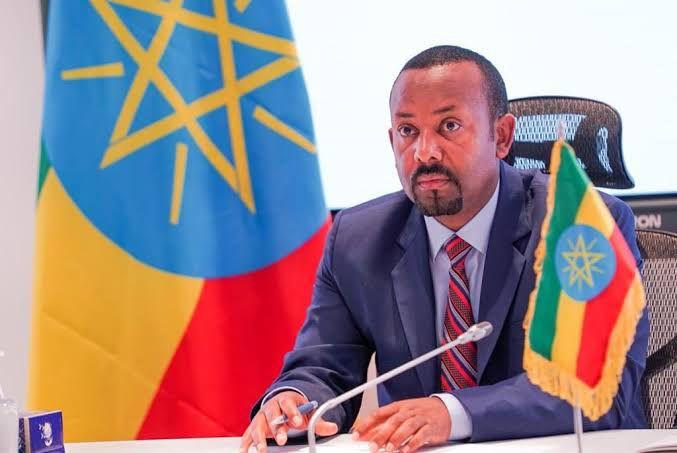By Hassane Abdoulaye (Niger)
This research work deals with the issue of Malian refugees in the city of Ayorou and their socioeconomic integration. It aims to understand the factors that facilitate the integration of refugees into the city. Field data collected at the level of the city of Ayorou through in situ observation, interviews and household surveys (100 households) provide a good understanding of the socioeconomic integration of these refugees in the city of Ayorou and identify the different factors that facilitate this integration.
Malian refugees rely on already existing social networks, formed on the basis of family ties that exist between them and the inhabitants to integrate into the city. These refugees engage in several commercial activities (selling items) and other activities (door-making, masonry) to meet their needs and to become selfsufficient. The Nigerien state and humanitarian actors are supporting Malian refugees in their integration process through assistance in the areas of food, health, education and incomegenerating activities (IGA).
Migration is at the heart of human history. It is becoming increasingly important due to the intensification of security crises (HAMIT KESSELY B, 2020). Today, migration is at the heart of political debates and scientific research. International migration plays an important role in these debates, and is the subject of much interest in the international arena due to its particular nature.
Africa has been a land of migration for decades, with all forms of voluntary and forced mobility superimposed throughout the continent’s history (LASSAILLY JACOB, V, 2010).
The number of refugees and internally displaced people is increasing in African countries, particularly in West Africa, where security crises have intensified since the 2010s.
Niger, as a transit and host country for migrants, is at the heart of international migration issues. In recent years, Niger has become a country of constrained mobility. Indeed, in addition to the 82,604 internally displaced persons (IDPs), since 2012 Niger has registered 283,318 refugees of all nationalities, including 60,862 Malian refugees settled in the Tillabéry, Tahoua and Niamey regions. The Tillabéry region alone accounts for 67% of all Malian refugees in Niger, i.e. 40,411 refugees residing in the Abala camp (40.10%) and the urbanized sites of Ayorou (30%) and Ouallam (20.07%). (UNHCR, 202)
The town of Ayorou, with 7371 inhabitants, hosts 11999 Malian refugees (CNE, 2021), i.e. 30% of Malian refugees in Niger. In addition to these refugees, Ayorou also hosts 6883 internally displaced persons. Despite its limited resources, this small town faces a high demand for social services from refugees, displaced persons and locals. What are the effects of the presence of refugees and IDPs in the town in terms of access to social services? How do these refugees cohabit with the local population in this small town? This study examines the socio-economic integration of Malian refugees in the town of Ayorou. It also examines the various activities in which refugees engage in the town, despite the lack of economic opportunities that characterize it. To address this topic, we have structured the work into four (
4) chapters. The first chapter deals with the literature on refugees, their protection, living conditions and integration into the host environment. This chapter also addresses the problematic and the methodology used in this work. The second chapter deals with the physical and demographic aspects of the town of Ayorou.
The third chapter presents the demographic characteristics of Malian refugees resettled in Ayorou, their localities of origin and their reception conditions. The fourth chapter elucidates the socio-economic integration of the town of Ayorou. The third chapter presents the demographic characteristics of Malian refugees resettled in Ayorou, their localities of origin and their reception conditions. The fourth chapter elucidates the socioeconomic integration in the town of Ayorou.
Hassane Abdoulaye currently PHD at University of Niamey (Niger). He is geographer by training and specialist in migration studies, particularly on refugee issues. He can be reached at abdoulayehassane307@gmail.com.





